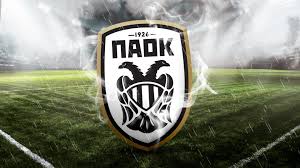PAOK FC is a renowned football club based in Thessaloniki, Greece, with a rich history, passionate fanbase, and significant achievements in Greek and European football. The term PAOK FC resonates deeply within Greek sports culture, representing resilience, tradition, and competitive spirit. This comprehensive article explores the multifaceted world of PAOK FC, covering its historical evolution, club culture, key achievements, notable players, strategic outlook, and future prospects Zo88.
The History of PAOK FC From Foundation to Glory
PAOK FC’s history is a compelling story of perseverance, passion, and ambition. Established in 1926, the club has grown from humble beginnings into one of Greece’s most formidable football institutions. Tracing its origins offers insight into how it cultivated a resilient identity, influenced by socio-political changes and sporting challenges over nearly a century.
Origins and Early Years
PAOK FC was founded on April 20, 1926, by Greek refugees who had resettled in Thessaloniki following the Greco-Turkish War and Population Exchange. This foundation laid the groundwork for a club rooted in community and cultural identity. The early years of PAOK were marked by struggles to establish a foothold in Greek football, often competing against more established clubs like Olympiacos, Panathinaikos, and AEK Athens.
During this period, PAOK primarily participated in regional leagues, gradually earning recognition for its spirited performances. The club’s early emphasis was on fostering local talent and building a passionate supporter base that would propel it forward.
Growth Through the Mid-20th Century
Post World War II, PAOK experienced a significant rise in stature, driven by infrastructural development and strategic recruitment. The club’s first major milestone was winning the Greek Cup in 1972, signaling its arrival as a competitive force on national levels. Notably, the 1970s and 1980s saw PAOK challenging the dominance of Athens-based teams, creating a more balanced competitive landscape in Greek football.
The club’s infrastructural expansion included the development of Toumba Stadium, which remains its iconic home ground. This period also witnessed the emergence of legendary players and coaching staff who contributed to PAOK’s growing reputation.
Achievements in the Modern Era
Entering the late 20th and early 21st centuries, PAOK FC experienced moments of both triumph and adversity. The club won multiple Greek league titles, with their first championship in decades secured in 1976–77. The 1990s and 2000s showcased an era of rebuilding, where youth development and strategic investments became central to the club’s philosophy.
Most notably, PAOK achieved remarkable success in European competitions, reaching the group stages of the UEFA Champions League and Europa League, which boosted its profile internationally. These campaigns further solidified PAOK’s standing as Greece’s premier football club outside Athens.
